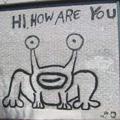Marx and Engels' ambivalence toward trade unions
The key thing that comes out of this collection of writings (taken from letters but also excerpts of various texts) is that Marx and Engels thought unions were necessary but no sufficient for revolution. Unions remained, for the most part, too narrowly focused on economic issues and were often hostile to political advocacy or organizing. However, M&E also saw unions as crucial organizing spaces, as "organizing centers" and as places where the working class "trains itself."
I read this as I work on an essay about unions as places where workers can engage in crucial rhetorical practice - learning to talk to other workers, honing arguments for labor, and gaining important experience in organizing. Until recent years, these "organizing centers" or "schools" for honing one's rhetorical skill with regard to questions of labor and militancy have been pretty weak. The recent interest in labor organizing means that we can …
The key thing that comes out of this collection of writings (taken from letters but also excerpts of various texts) is that Marx and Engels thought unions were necessary but no sufficient for revolution. Unions remained, for the most part, too narrowly focused on economic issues and were often hostile to political advocacy or organizing. However, M&E also saw unions as crucial organizing spaces, as "organizing centers" and as places where the working class "trains itself."
I read this as I work on an essay about unions as places where workers can engage in crucial rhetorical practice - learning to talk to other workers, honing arguments for labor, and gaining important experience in organizing. Until recent years, these "organizing centers" or "schools" for honing one's rhetorical skill with regard to questions of labor and militancy have been pretty weak. The recent interest in labor organizing means that we can think about union spaces as crucial places for learning, thinking, and practice.















